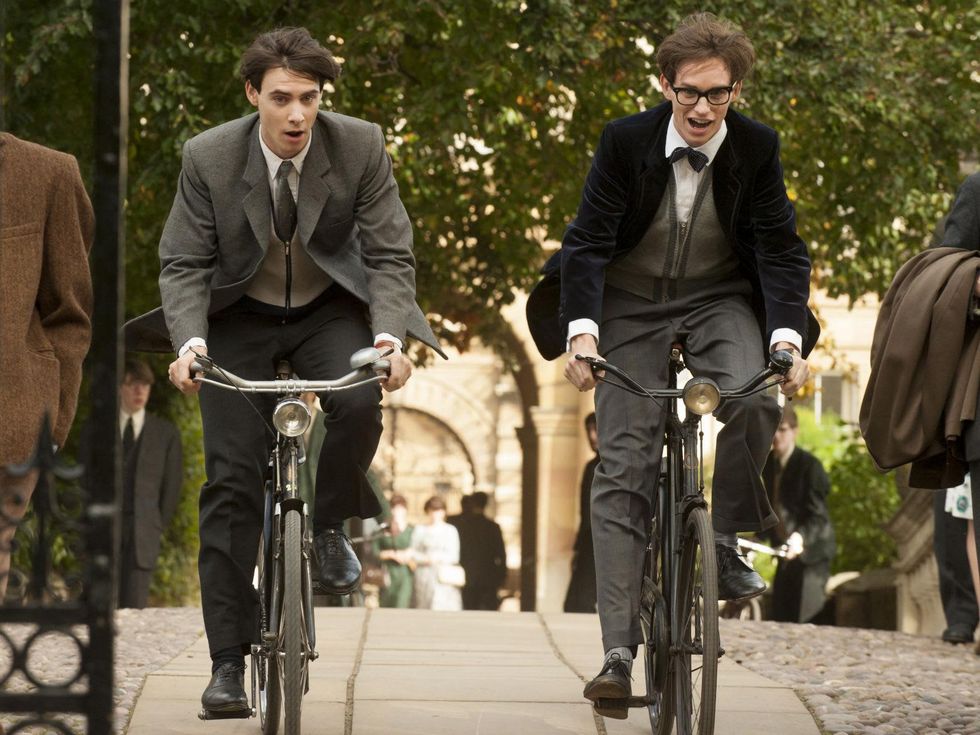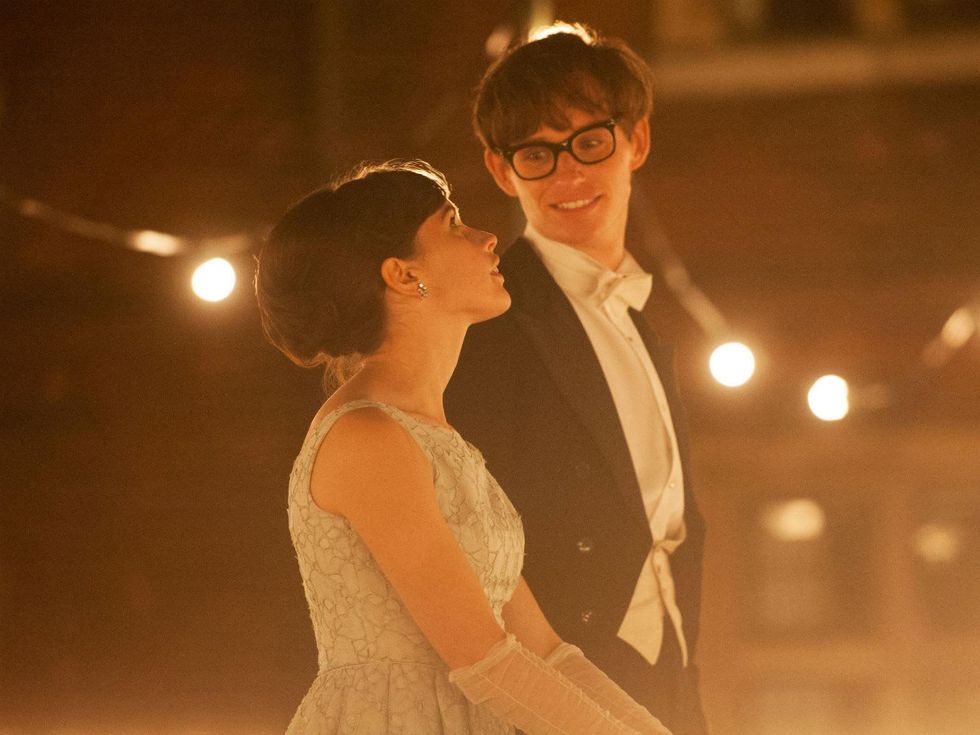The Science of Love
The Theory of Everything favors love over science in Stephen Hawking's life story
Stephen Hawking, who has developed scientific theories that boggle the imagination, would be an impressive individual based solely on his intelligence. But when you also consider that he’s done the vast majority of his work while battling a motor neuron disease, and that he’s confounded doctors by surviving the disease for 50 years, he becomes all the more amazing.
The Theory of Everything attempts to take stock of Hawking’s life, following him from his days as a doctoral student at Cambridge University through his storied career to his roles as husband and father.
Much of the film is set up as a love story between Hawking (Eddie Redmayne) and his wife, Jane (Felicity Jones), whom he met at Cambridge before his diagnosis. Theirs is a classic “opposites attract” situation, and neither their disparate beliefs — his in science, hers in religion — nor his debilitating disease can keep them apart.
Much of the film is set up as a love story between Hawking (Eddie Redmayne) and his wife, Jane (Felicity Jones), whom he met at Cambridge before his diagnosis.
Director James Marsh and screenwriter Anthony McCarten do their best to make both Stephen and Jane into three-dimensional characters. Not only do we get to see Stephen’s brilliance, but we’re also treated to his biting sense of humor and his occasional irritable demeanor. Jane, whose book serves as the basis for the film, is also shown to have both positive and negative characteristics, which prevents her from being a do-no-wrong angel, a portrayal that would ring false.
They also keep the high-minded science of the film relatively accessible, which provides an interesting contrast to how very similar ideas were presented in Interstellar. While experts have praised the accuracy of the science in Christopher Nolan’s film, having those ideas come straight from the horse’s mouth — or computer, as it were — in a matter-of-fact manner somehow makes them more plausible and palatable.
One of the few things the film does not address is how Hawking has been able to survive a disease that usually kills those afflicted with it within a couple of years. Perhaps, unlike Hawking’s study of black holes and the rest of the universe, something like that will forever remain a mystery.
Like Jake Gyllenhaal in Nightcrawler, the film’s success mainly hinges on Redmayne’s performance. The way he inhabits Hawking’s famous visage is truly remarkable, and it must have taken incredible discipline for Redmayne to repeatedly contort his face and body. That, along with everything else about his performance, should put Redmayne high on the list for a Best Actor Oscar nomination.
The film as a whole fades a bit toward the end, but that’s mainly due to the familiarity of Hawking’s life story. Apart from a few personal details, there aren’t many surprises in the second half of the film, robbing it of some dramatic oomph.
Still, the astounding nature of Hawking’s life coupled with an astonishing performance by Redmayne make The Theory of Everything a memorable movie. Hawking’s intelligence may go beyond most of our understanding, but his life is as relatable as any other.





 Poster art for The Summer Sauron Turned Pretty.Poster by Billie Buck
Poster art for The Summer Sauron Turned Pretty.Poster by Billie Buck The Museum of Human Achievement puts on Titanic #2: The Floater.Photo by Ismael Quintanilla III
The Museum of Human Achievement puts on Titanic #2: The Floater.Photo by Ismael Quintanilla III